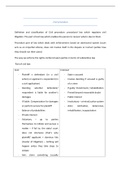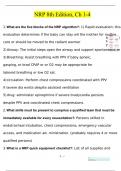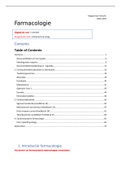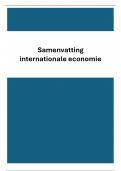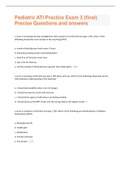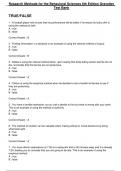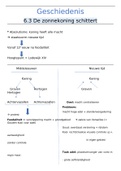Class notes
Civil Procedure 371: Semester 1 notes and cases
- Course
- Institution
- Book
Notes from the whole of semester 1, which have been made from the lectures and the textbook. The notes also include case discussions and examples of the practical work covered. They contain everything you need to do well in A1 and A2 (semester 1).
[Show more]
